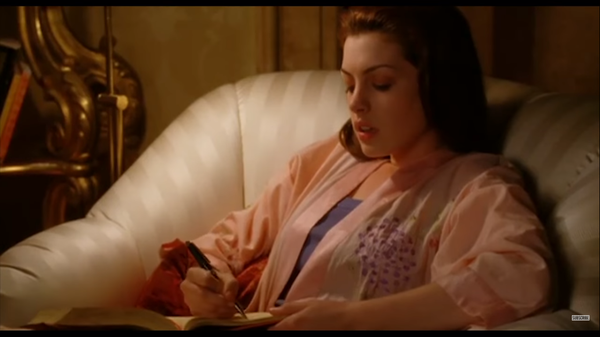On March 25, 2020 the Sundance-premiering documentary "Crip Camp", directed by James Lebrecht and Nicole Newman, made its Netflix debut. The film tells the story of the experience and legacy of Camp Jened, a summer camp for teens and young adults with disabilities, tucked away in the Catskills, just down the road from Woodstock. Initially created by the families of children with cerebral palsy, the sleep-away camp in its original form operated from the 1950's to 1977 and took campers with various impairments. Jened was a utopia of inclusion, operated by those of all races, genders, and abilities and allowed teens that attended to truly be teens. Former campers interviewed in the film recollected with fondness going up to bat for camp baseball games, kissing their first boyfriend or girlfriend, attending Woodstock, and having candid conversations with their friends about the world and their position in it. The connections made at Jened, and the validation of actualized accessibility and inclusion, helped spark the Disability Rights Movement of the 1970's. One renowned former counselor and current author and activist, Judy Heumann, went on to pen a section of the Americans with Disabilities Act and brought the spirit of Camp Jened to her future occupations championing accessibility under several presidential administrations. A place of felicity and an environment open to all who lived in it, Jened provided the inspiration and lived experience for the network of campers and counselors to ask: "What if the rest of our world was like this?"
I watched the documentary the evening it was released in a virtual viewing party with several co-workers of mine. Over the summer, we run the Kochavim program at Camp JCC in my hometown of Rockville, Maryland. Kochavim is a unit in the camp provisioned for teens and young adults with disabilities and while watching the film with its directors I was struck with the profundity of Jened and the recognition that Camp JCC would most likely not be possible without it. I could see how far we had come from our predecessors due to all of the legal provisions they had trailblazed; Camp JCC takes campers of a wider and higher range of needs and abilities than Jened and takes twice-weekly field trips into the community, expanding the physical range of inclusion more than Jened was able to. The comparisons between summer camps like mine and Jened that bolster the former against the latter are easy to make, but upon watching the documentary, I realized there are so many lessons to still be learned and applied from Jened and what was done there.
Sleep away camps for teens with disabilities are few and far between, often only accommodating campers with physical impairments. While Jened took almost exclusively teens and young adults with physical needs, they show us that a summer-long sleep away camp is possible. An overnight trip has been a goal of mine and my coworkers for years, the major obstacle being staff and concerns about their willingness to work 24/7. The counselors at Jened and all they did for the space and those living in it, is a reason to hope. There were indeed people who wanted to work all day and all night with campers with disabilities, and they did it with a smile. These staff of all backgrounds and bodies have even more to teach us about the value of inclusion at all levels. Camp JCC has been making an effort to include those with disabilities within the camp staff, but currently only a small minority are members of the population we work with. The elimination of layered power dynamics is something Camp JCC is intentionally striving towards and we can look to Jened for the reason why. One of the most powerful scenes for me from "Crip Camp" is when Judy Heumann, occupying a wheelchair, leaves a porch of campers to go help someone bathe. A young person with disabilities being in the charge and care of those also with disabilities is an uncommon but extremely valuable experience as being consistently dependent on those without creates an explicit power dynamic between populations as well as individuals. Jened shows us how to better in expanding physical, social, and emotional access through inclusion, and I was taking notes.
I cannot recommend watching "Crip Camp" enough and if you want to watch with family and friends there are some great softwares to assist you in chatting virtually, for example, Netflix Party and Scener. I encourage you to reflect on what the freedom and bliss of Jened taught us during the Disability Rights Movement and what they can teach us now as the lessons are numerous and joyful.



















